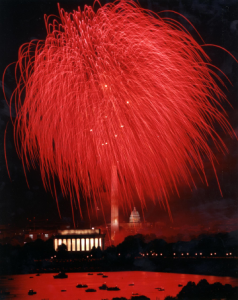
Photo credit: Terry J. Adams
Goodbye, 2013. Hello 2014.
It’s time to review Zebra Fact Check’s first full year.
We produced 57 fact checks in 2013, or just over one per week. Seventeen of those were fact checks of other mainstream fact checkers, such as FactCheck.org or PolitiFact. We also checked one claim from Consumer Reports and another from the partisan Media Matters for America.
While we’re proud of our production given the part-time labor involved, in this year-end review we’re more interested in assessing how we’re meeting our goals.
Checking claims other fact-checkers do not check
As we expected, it wasn’t hard at all to find highly dubious claims by Democrats and liberal groups that mainstream fact checkers simply don’t check.
Setting a new standard for transparency
Not only do we publish major corrections in a special section easily found on our menu tabs, we put the corrections on the scrolling list of new stories on our introduction page. We had three of those in 2013, and we’re looking forward to lowering that number in 2014. We believe we are the fact checker most prominently seeking corrections from readers via “Report an Error.”
We’ve long nurtured a pet peeve that journalists typically do not reveal the questions they ask of experts. Nor do they often give readers a look at the less quotable parts of an expert’s answers. We credit PolitiFact Texas with sometimes publishing responses from experts. We take the policy to its logical conclusion: We try to publish everything relevant from our expert interviews. Readers can judge for themselves whether we asked a leading question and whether we used quotations out of context.
When we publish our policy on identifying persons who donate significantly to support Zebra Fact Check, we think we will stand as the clear leader in transparency among fact checking services. And that’s a mere formality since we have so far received no outside support at all (not even from the Koch brothers!). We should rattle the tip jar more often, apparently.
Some notable fact checks from 2013
We can’t say we’re completely surprised that fact checking Will McAvoy’s opening speech from the HBO series “The Newsroom” was our most popular story for 2013. We’re surprised we were the first to undertake the project.
We’re very proud of the detailed work we did in explaining the meaning of the claimed “97 percent” consensus often trumpeted as a supporting evidence for climate change. The figure is routinely misused. Even NASA does a poor job of reporting it. We went through every study purported to support a scientific consensus and carefully identified what each such study actually shows.
We’re likewise proud of the reporting we did on George Washington’s view on the Second Amendment. We don’t know whether Washington would support an individual right to bear arms as it is understood today, but it seems certain enough that he recognized the Second amendment as a hedge against tyrannies foreign and domestic, including that of a federal government turned to tyranny. That view was the order of his day, and his popularity was partly attached to his mainstream political views. We studied that issue deeply to suggest a resolution to the divided opinions of experts. We dismiss the approach of letting the view of a majority of experts decide the truth.
We think we were alone in questioning claims the Violence Against Women Act (1994) played a significant role in decreasing domestic violence.
We think we outdid the competition in assessing Democrats’ claims about reducing the deficit.
A broader mission, and affirmations
We’ve expanded beyond the normal scope of fact checking by doing reviews of journal articles dealing with fact checking. This fits with our goals of helping readers learn critical thinking skills and intelligently questioning authoritative sources.
Finally, we had two notable instances of professional affirmation.
In one case, we started researching a quotation attributed to Louis Brandeis only to find that we were following a trail blazed over a period of years by Scott Campbell of the University of Louisville. Campbell capped our inquiry by sharing the results of his own exhaustive investigation of the quotation. We were pleased that our more limited examination of the evidence had us aimed at about the same conclusion Campbell reached.
In the other case, we criticized a fact check by Glenn Kessler, the Washington Post Fact Checker. Kessler graciously tweeted his agreement with our assessment.
That was our 2013, in brief. On to 2014.



